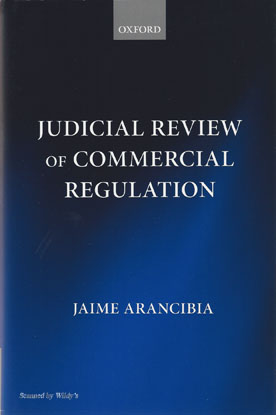
English courts have traditionally held a policy of judicial restraint towards regulatory decisions in the commercial context. This book provides a critical view of the courts' deferential attitude and advocates a more intensive form of judicial review which is more satisfactory in terms of individual justice.
Addressing the issue in three parts, the orthodox common law position on judicial review is first set out, demonstrating the deferential approach of the courts and highlighting the limited scope of review in a commercial context. The regulator's expertise and institutional autonomy, and the demands of administrative efficiency, all contribute to preventing the courts from interfering with the development of regulatory policies.
The book then moves on to consider how current policy appears to be inconsistent with the relevant values of English public law which protect individuals from capricious and arbitrary executive action - particularly the right of the applicant to obtain an independent assessment of the validity of the impugned decision by a court which acts as ultimate arbiter of law.
Setting out an alternative model based on European human rights law, the book contends close supervision is necessary over decisions which alter or determine the operation of markets in order to reach a level of judicial control that is consistent with the requirements of fairness and reasonableness in this area and with proper respect for the rights of the parties involved.
This alternative approach finds its roots in the principle of proportionality, which entails a greater judicial attenuation of administrative autonomy in order to ensure that actions do not go beyond what it is strictly necessary to achieve the desired outcome.